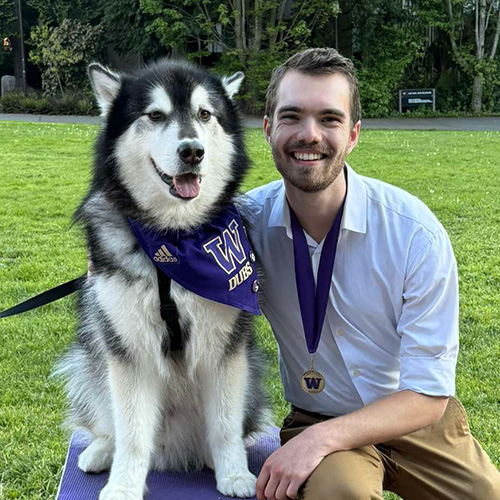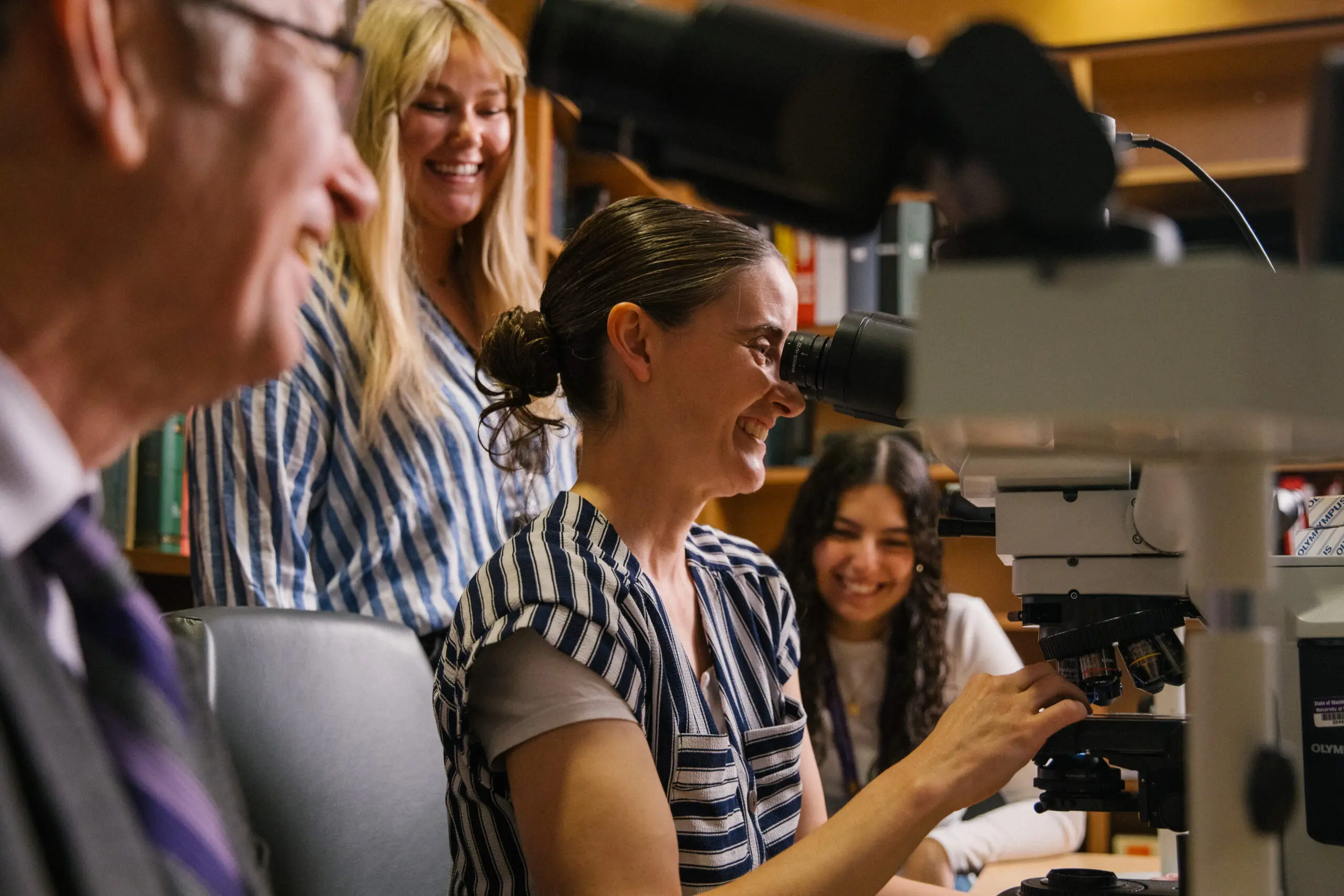
“My path to medical school hasn’t been direct or easy. But I’m determined to forge a better future and be the advocate for others that I wish I’d had.”
As a kid, I grew up in the child protective services system, constantly being taken from my home due to substantial abuse before being released back to begin the cycle again. I remember being so frustrated because when I tried to speak up, no one believed me.
I wound up spending a lot of time as a patient in the local hospital in Colville, Washington. Being pretty inquisitive, I wondered what it’d be like on the other side as a doctor or nurse. That’s where my interest in medicine started.
Finally at 17, I packed a bag and walked out to escape my life and have a chance at a new one.
Even though I had no place to go.
A true home — then a tragedy
I spent the next year homeless in Spokane until I was able to connect with an aunt and uncle who lived in the Tri-Cities area, and they took me in.
They provided me with food and shelter, but most importantly, my first true home. With their help I was able to finish high school, take Running Start classes that counted for college credit, and in time, apply and be accepted into college.
Three weeks before I was supposed to leave for college, my uncle had a heart attack. I tried to resuscitate him, but he died in my arms. It was one of the worst days of my life. But I also remember being impressed by the emergency medical services crew. Their attempt to save him made me think that emergency medicine was something I might like to do — take an awful situation and try to flip the script.
My uncle’s death left my aunt in financial jeopardy, but I promised her that I’d build us a better future, no matter what it cost.
Hard work and a dream within reach
Carroll College in Montana offered me the best scholarship package and it had a good pre-med pathway, so that’s where I enrolled. Because money was so tight, my goal was to graduate in three years, instead of four.
And I worked — a lot. I juggled my full-time classes and multiple jobs, everything from the office manager for a student newspaper, to a cameraman for a sports broadcaster. Then I got my emergency medical technician (EMT) license and did that, plus a side gig as a mental health technician. There were times I worked 40 to 50 hours a week on top of school so I could cover my tuition and send money back home to my aunt.
It was grueling but I did it, graduating in three years with a major in biology. Afterward, I continued to work in emergency medicine and healthcare, sending money home.
I still wanted to be a doctor. As an EMT, you treat a vital — this person is low on oxygen, so you give them oxygen — but I wanted to understand everything that was going on with the patient and how a condition might be causing or compounding an issue.
Once my family was more stable, I applied to medical schools, and the UW School of Medicine was high on my list. At first, I didn’t realize they had a Spokane program — when I got in, it was a way to stay close to family and pursue my dream.
Finding community and a way to give back
One of the things I appreciate about the UW School of Medicine Spokane program is that the class sizes are small, and I feel like I’ve found a community that’s genuinely invested in me as a person. Growing up homeless and in youth services, I often felt isolated, struggling against the world.
The biggest challenge now is just the cost of medical school. Many of my classmates come from families with money, so when a test comes up, like one of our national exams, and it’s $890, it’s not a big deal for them. They’re not worried about tuition. And then there are others like me who have taken on hefty student loans.
That’s why scholarships are so important. I received the Durward A. Huckabay, M.D. Endowed Scholarship, and I’m really grateful. It’s helped ease a lot of stress and made me feel supported. I’m trying to give back by advocating for more state support for underrepresented students to attend medical school.
In Colville, where I grew up, 20% of people live below the poverty line. Very few people went to college, and no one else, to my knowledge, has gone to medical school. There are also too many physician deserts, in both rural and urban areas, where people can’t get care.
Students from underserved communities, like me, are more likely to return and serve those places. But it’s hard to build a physician workforce like that when there are so many barriers. Scholarships help change that. They help make it possible for people to pursue their dreams and give back to the communities they came from.
My path to medical school hasn’t been direct or easy. But I’m determined to forge a better future and be the advocate for others that I wish I’d had.
As told to Nicole Beattie


